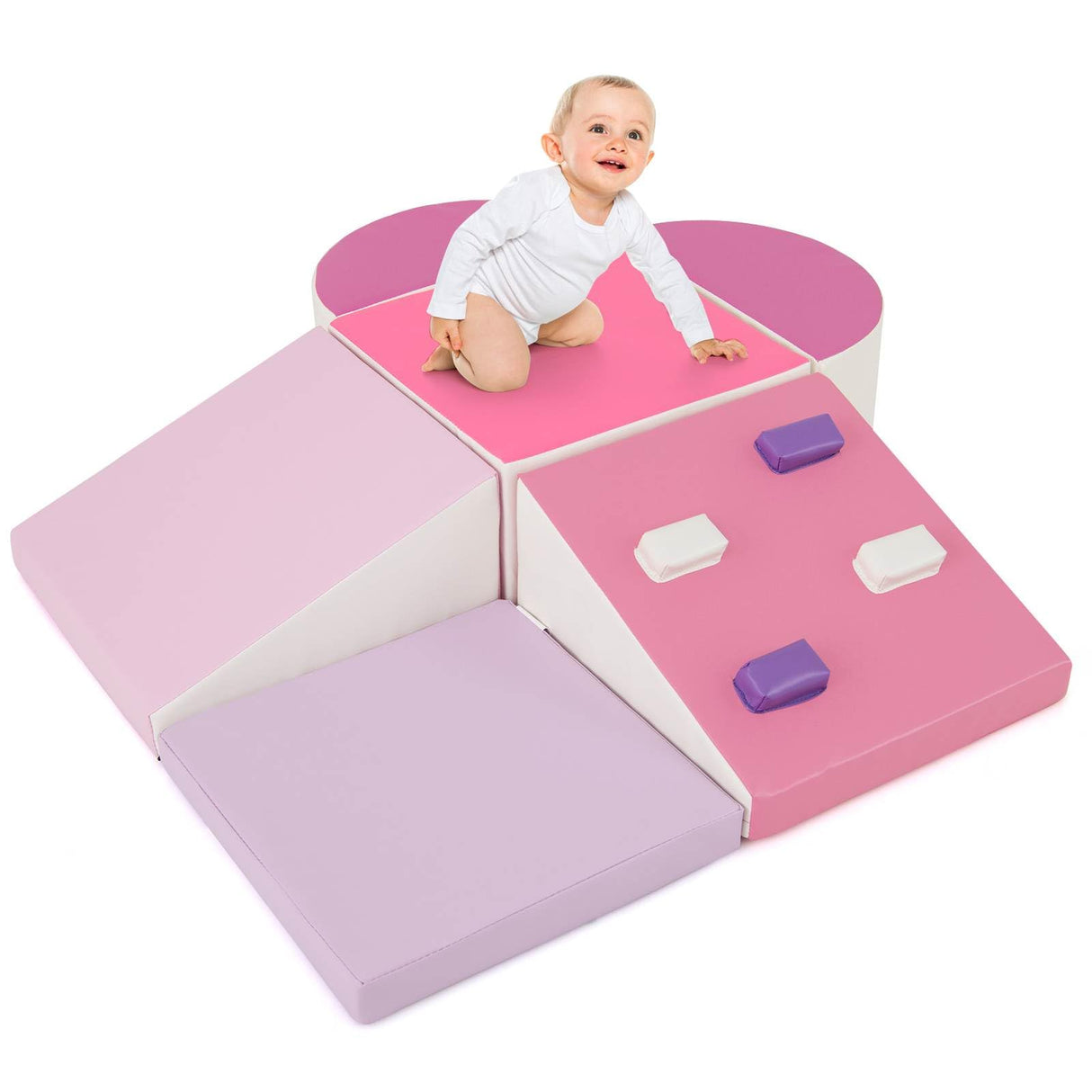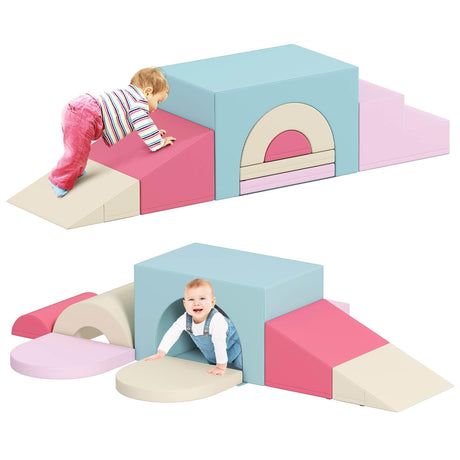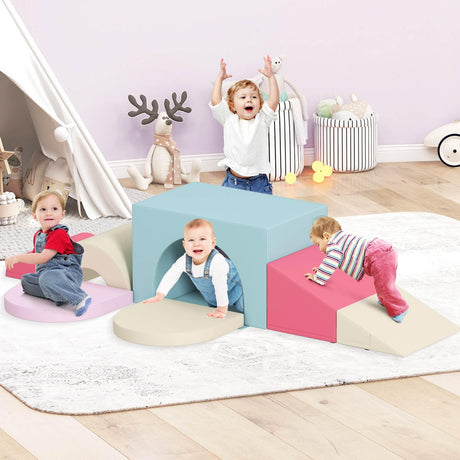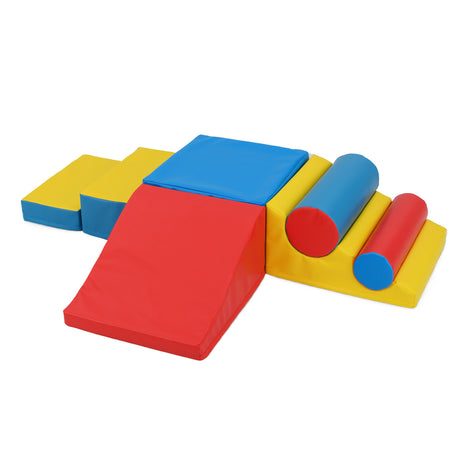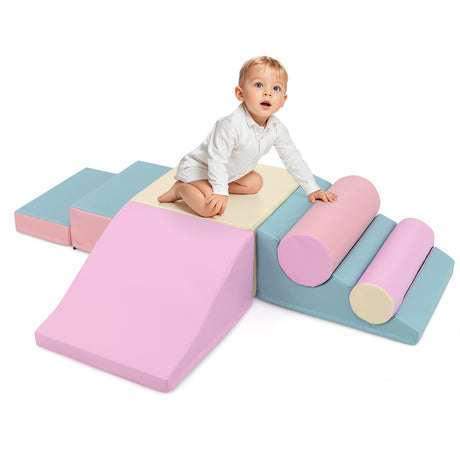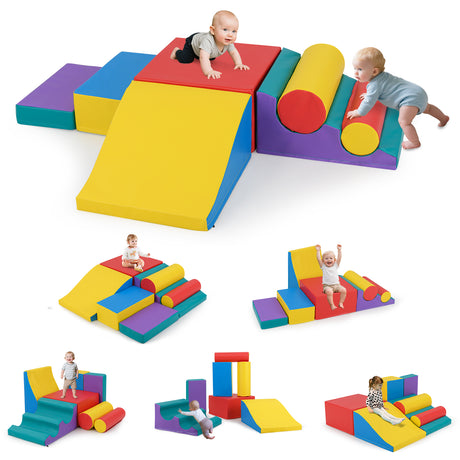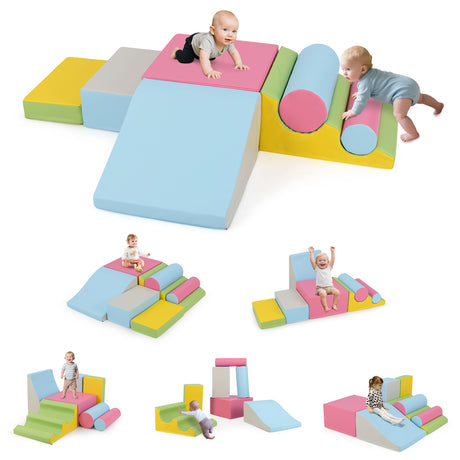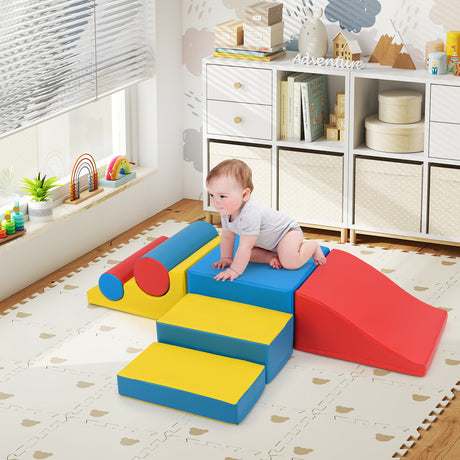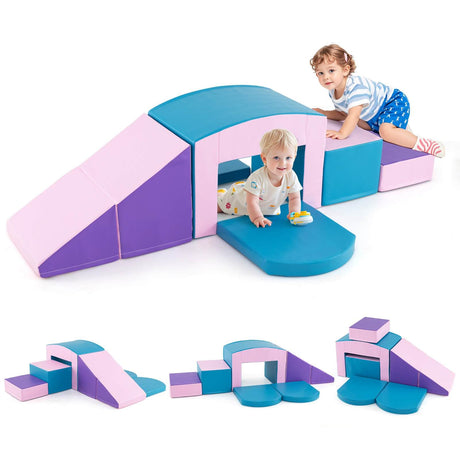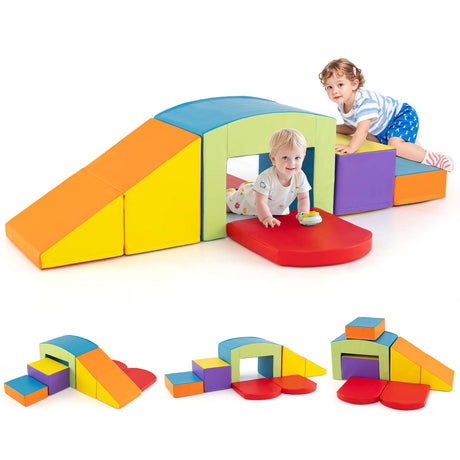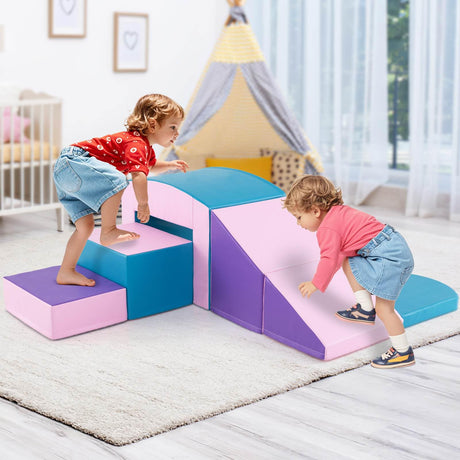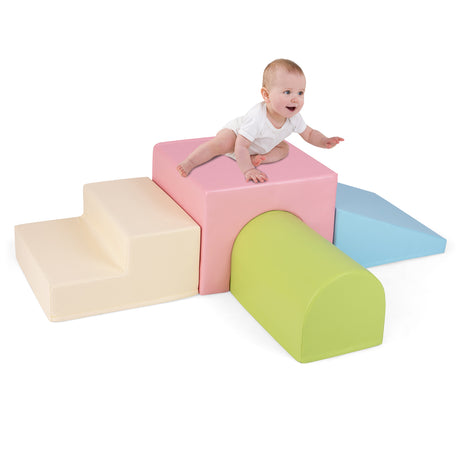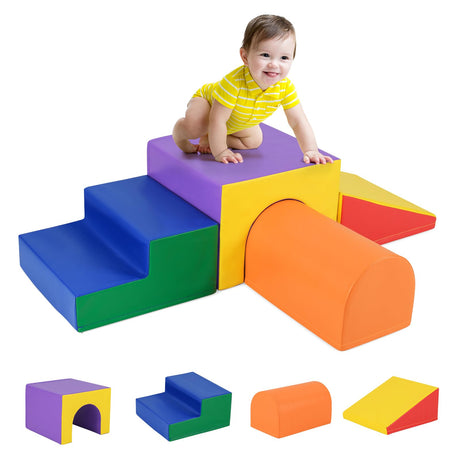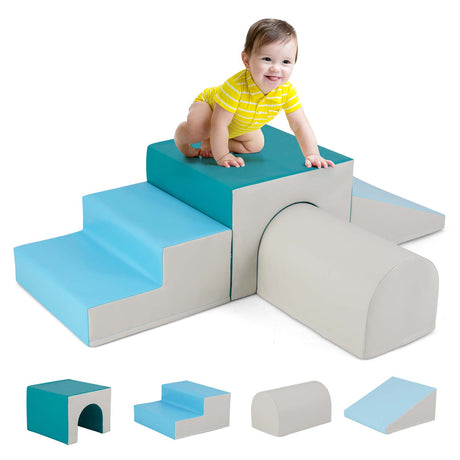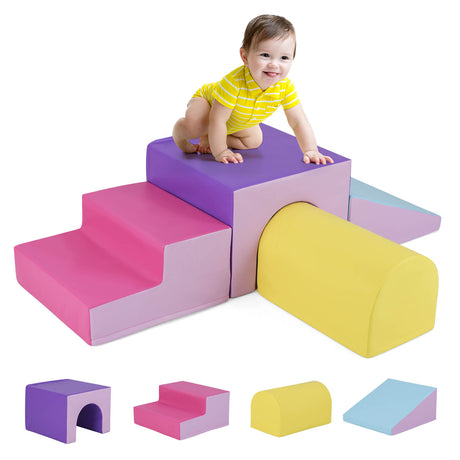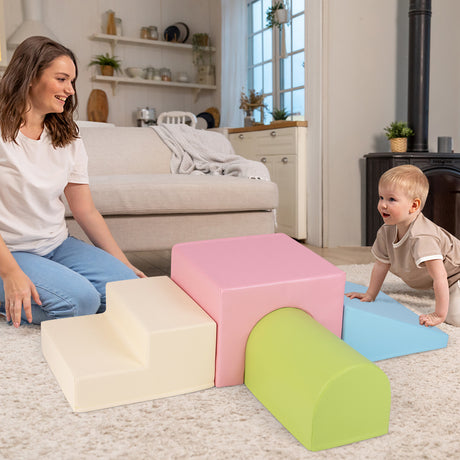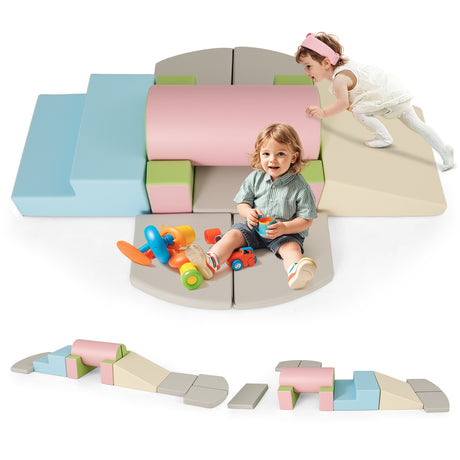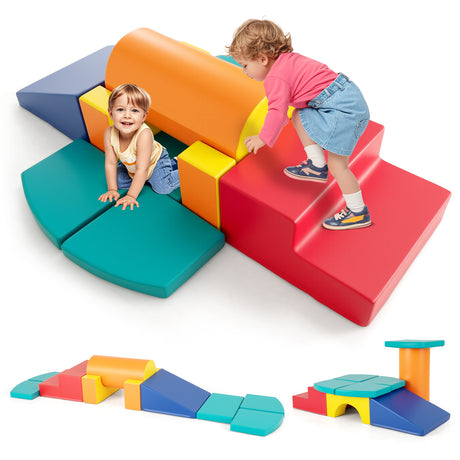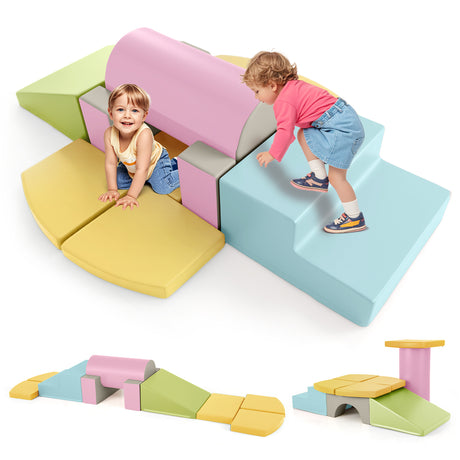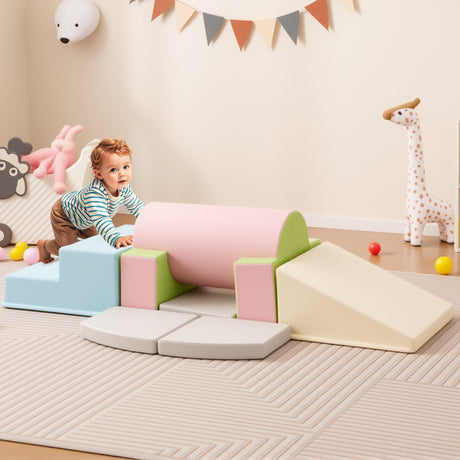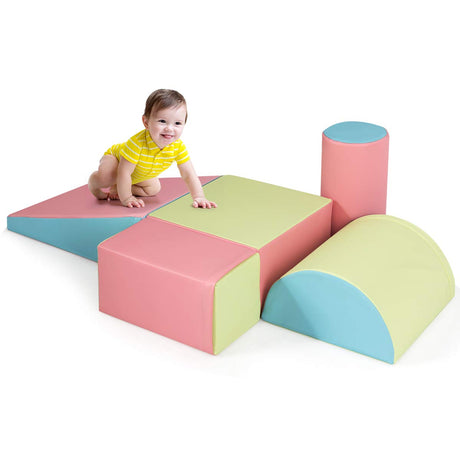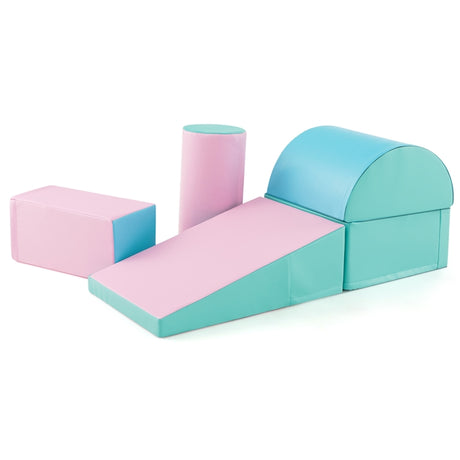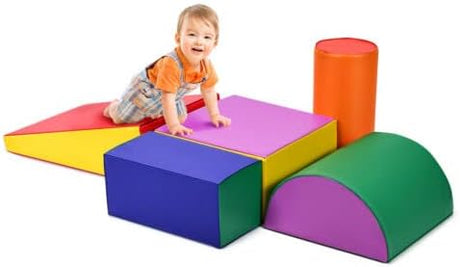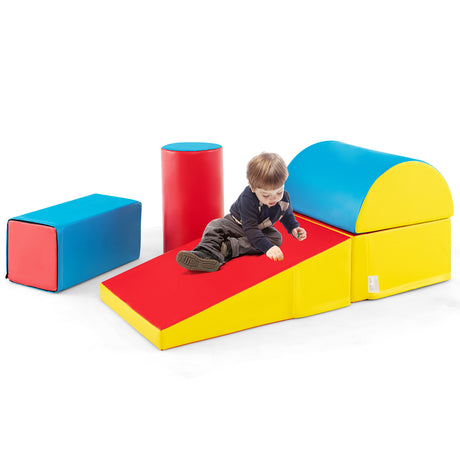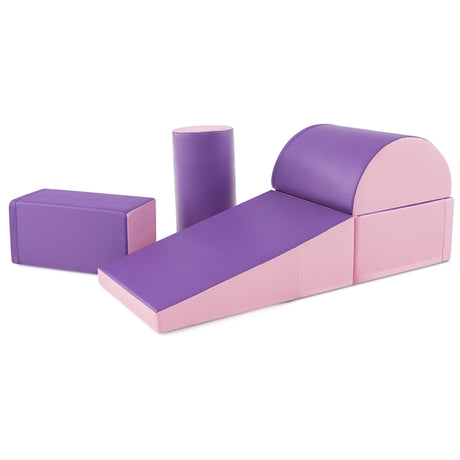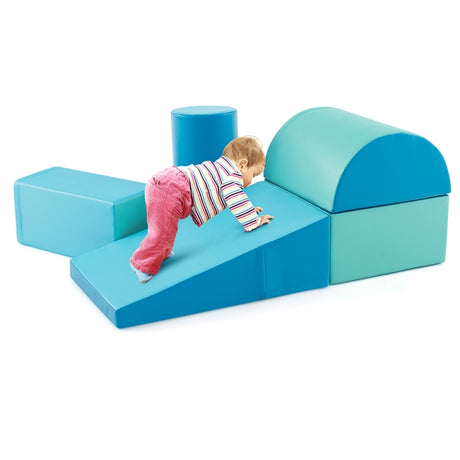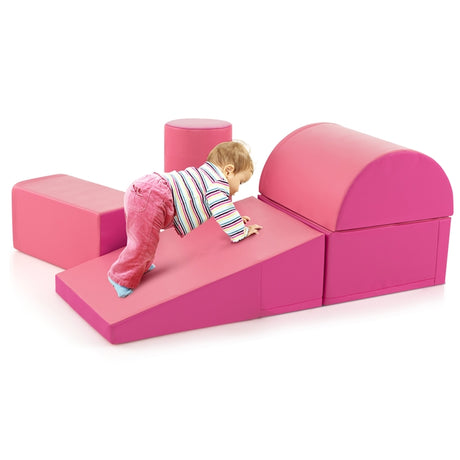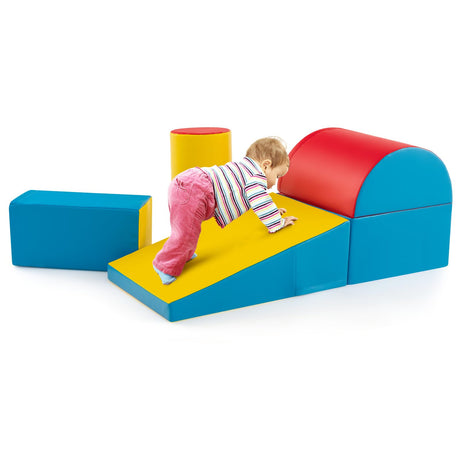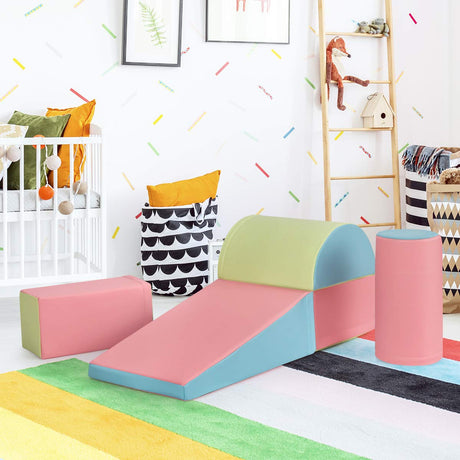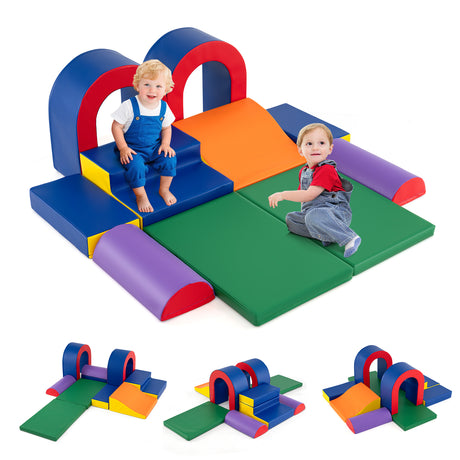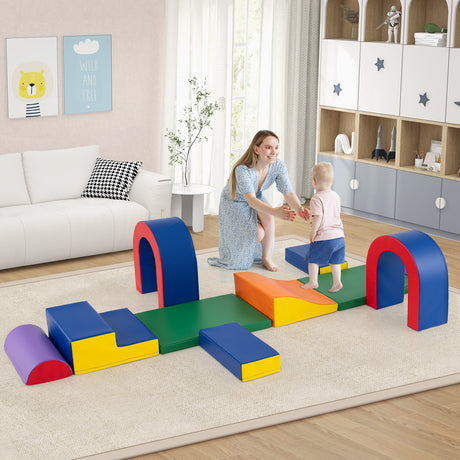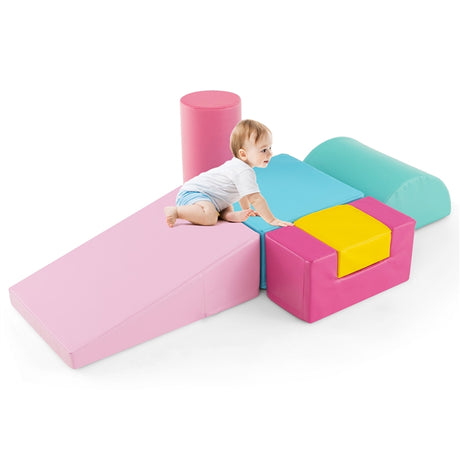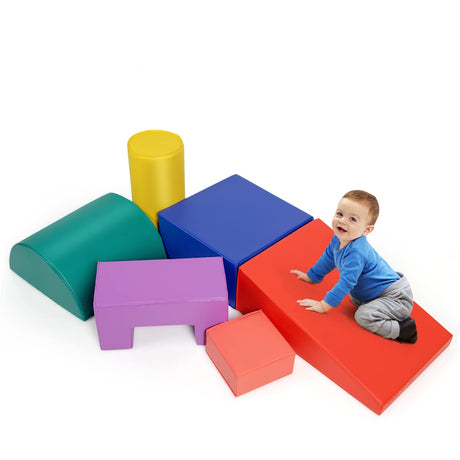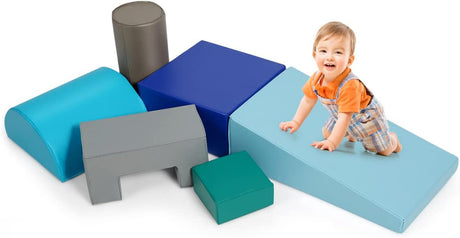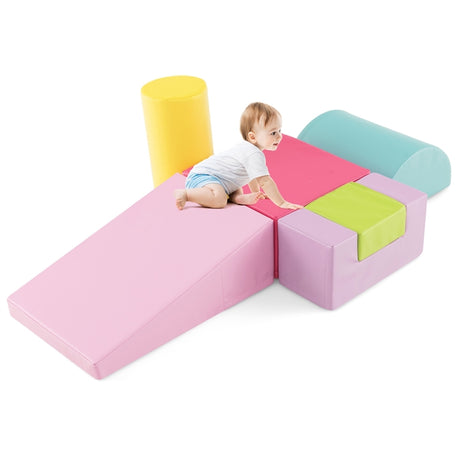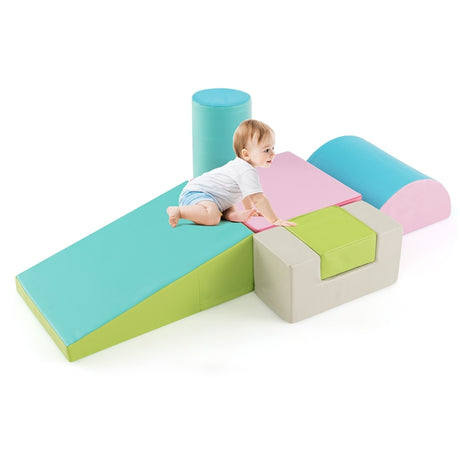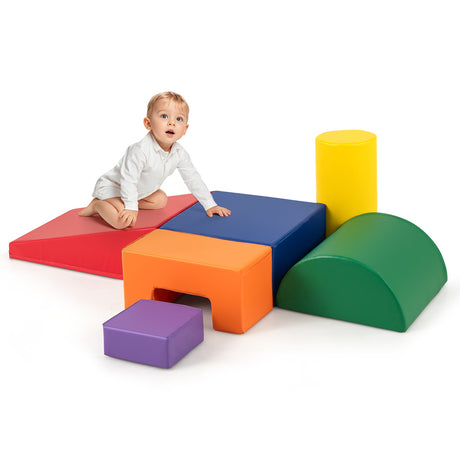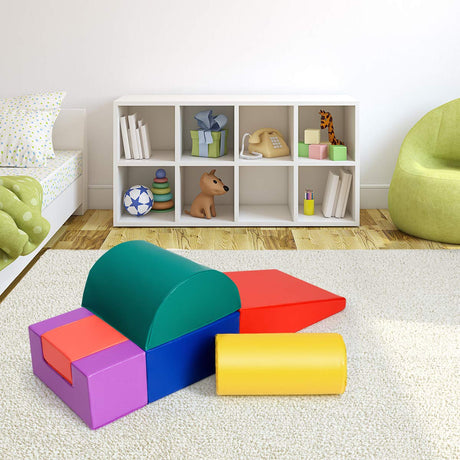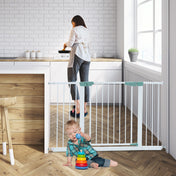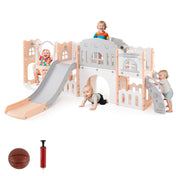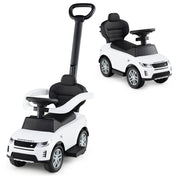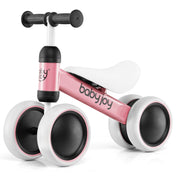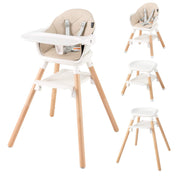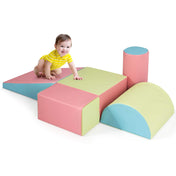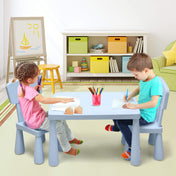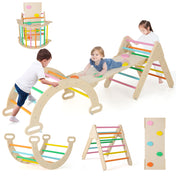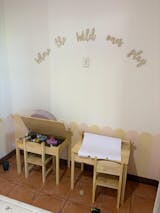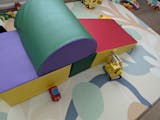Inside this Article:
- What Is Montessori Education?
- Understanding Montessori Education by Age
- What Makes Foam Climbing Blocks Montessori-Friendly?
- Benefits of Using Foam Climbing Blocks in Montessori Play
- How to Set Up a Montessori-Inspired Foam Play Area
- Simple Montessori Activities with Foam Climbing Blocks
- Final Thoughts
Montessori-Inspired Play with Foam Climbing Blocks
What Is Montessori Education?
Montessori education is a child-centered approach developed by Dr. Maria Montessori, an Italian physician and educator. It emphasizes independent learning, freedom within limits, and respect for a child’s natural psychological development. In Montessori environments, children learn by doing—engaging with thoughtfully prepared materials that encourage exploration, decision-making, and hands-on discovery.
- Instead of direct instruction, teachers guide children to make their own choices and solve problems independently. The goal is to support the child's growth in physical, emotional, social, and thinking skills. We do this through play and real-life experiences.
- Parents can use this philosophy at home with simple setups. Set up a Montessori bedroom to invite kids' movement, curiosity, and confidence. Foam climbing blocks are a great choice for this.
- Foam climbing blocks may not be the first thing you think of with “Montessori.” However, they are a great match for this child-led, hands-on learning style.
- Soft and safe foam climbing blocks are great for little hands and feet. They help kids move freely and explore their surroundings. These blocks also build confidence through physical activity.
Let's explore how to use foam climbing blocks to build a soft play area at home.
Understanding Montessori Childcare by Age
Montessori is different from traditional education. Children will learn at their own speed. They can follow their natural interests and instincts.
One strength of the Montessori approach is how it changes to meet the needs of children at different stages.
Infants and Toddlers (0–3 years):
- Focus is on sensory experiences, freedom of movement, and the development of basic motor skills and independence. The environment should be safe, calm, and simple, allowing babies to explore with minimal adult interference. Soft play items like baby climbing toys, toddler foam play sets, and foam climbing blocks are ideal during this stage.
Preschool Age (3–6 years):
- The child’s world expands to include practical life skills, language development, fine motor coordination, and problem-solving. Materials and toys become more structured, but still encourage discovery and autonomy. Foam blocks can support gross motor activities and imaginative play during this phase.
Elementary Age (6–12 years):
- Montessori learning in this period emphasizes critical thinking, collaboration, and deeper exploration of academic subjects through projects and hands-on activities. Movement remains important, and physical materials like climbing toys and obstacle courses help balance mental and physical development.
Montessori encourages caregivers and teachers to watch instead of tell. This helps build a lifelong love of learning based on curiosity and confidence.
What Makes Foam Climbing Blocks Montessori-Friendly?
The core of Montessori education is independent exploration through purposeful play. Traditional Montessori materials are usually wooden and simple. However, the main ideas can still work with modern toys like foam blocks, especially when used for a purpose.
Here’s why foam climbing blocks align with Montessori values:
Freedom of movement
- Children choose how they move and play, developing motor skills naturally.
Self-directed learning
- No fixed outcome means kids create their own goals: build a tunnel, climb a hill, or crawl through an obstacle.
Hands-on exploration
- Toddlers learn best through doing, and climbing, stacking, and balancing offer tactile, full-body engagement.
Safe independence
- Soft materials allow even younger children to explore risk in a safe, controlled way.
- Foam climbing blocks for toddlers offer a fun and practical way to implement Montessori principles at home.
Benefits of Using Foam Climbing Blocks as Montessori Play Equipment
Gross Motor Skill Development
- Climbing, crawling, and sliding build strength, coordination, and body awareness—essential foundations for future learning. Montessori toys, like soft climbing blocks and toddler climbing blocks, help children develop these skills naturally.
Problem-Solving & Spatial Awareness
- Kids intuitively learn cause and effect as they figure out how to build, stack, or move around different shapes using foam play blocks.
Confidence Through Risk-Taking
- The Montessori movement area encourages safe risk-taking. Climbing blocks let children test limits without fear of hard falls. Soft play equipment for home can be a great way to nurture this confidence in young learners.
Independent & Cooperative Play
- Whether playing solo or with siblings, foam blocks promote both individual creativity and collaborative teamwork.
How to Set Up a Montessori-Inspired Foam Play Area
You don’t need a full gym to get started—just a few key elements arranged with care:
Choose neutral or calming colors
- Stay away from overstimulating visuals to encourage focus in your Montessori playroom ideas.
Limit clutter
- Less is more. Offer a few pieces at a time to avoid overwhelm in your baby's indoor play center.
Allow accessibility
- Keep blocks within reach so kids can take and put away independently.
Observe, don’t instruct
- Watch how your child engages, and resist the urge to “teach.” Let them lead.
- Adding toddler foam play sets or a baby soft play gym to your home is a good idea. It helps combine Montessori activities with gross motor skills.
Simple Montessori Activities with Foam Climbing Blocks
Obstacle Course Challenge
- Let your child design their path or rotate shapes for a new challenge every day. Indoor toddler gyms and soft play sets for toddlers make this especially easy.
Color or Shape Sorting (for older toddlers)
- Incorporate blocks into sorting games to reinforce shape and color recognition. Use foam play furniture to encourage imaginative play.
Quiet Time Fort
- Encourage rest and imagination by helping your child build a cozy reading nook using larger foam blocks.
Final Thoughts
- Montessori play isn’t just about buying the “right” toys. About making space for your child to learn by exploring and being independent. Foam climbing blocks are a versatile, safe, and enriching way to support that journey at home.
- If you are setting up an indoor play area or an activity center, these baby climbing toys can help. They support balance, coordination, and fun exploration.
- With the right setup, toys that encourage independence can change your space. Montessori foam blocks, baby play center equipment, and open-ended play toys can create a place for learning and growth.
- Let your child take the lead in learning through movement. Use sensory play toys and physical development toys. These toys inspire creativity and build confidence every day.





